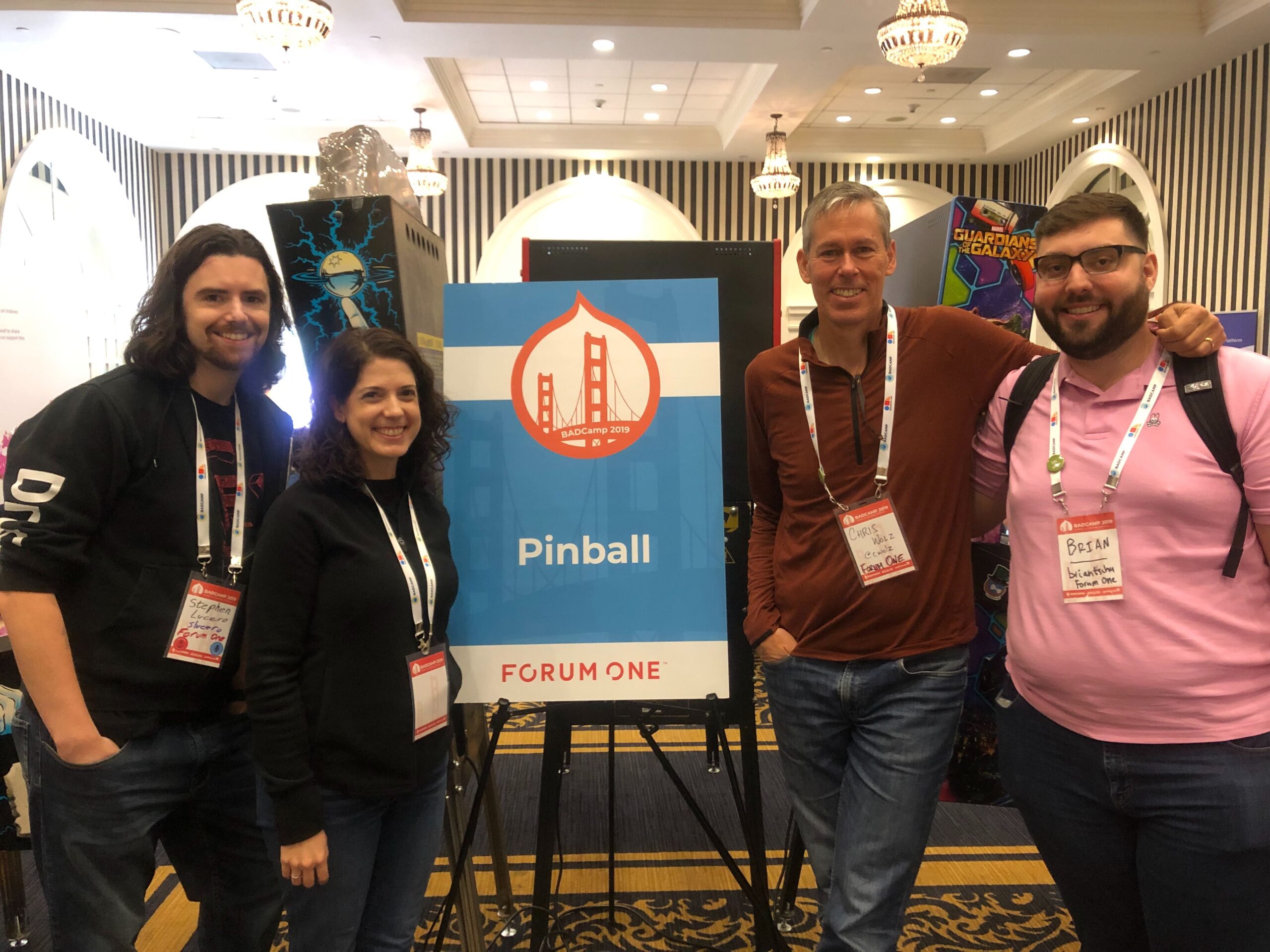Blog Insights
What’s New in Drupal: 5 Things I Learned at BADCamp 2019
This month I attended the Bay Area Drupal Camp (BADCamp), an annual gathering of Drupal enthusiasts, for a few days of knowledge sharing and networking. I came back energized by the information I learned in the sessions I attended, and I can’t wait to implement some new approaches into the work we do with Drupal on behalf of our clients. Here is a roundup of five important things I learned during my time in Berkeley, CA, with my fellow Drupal developers and strategists.
 The Forum One team at BADCamp 2019: (from left to right) Stephen Lucero, Director of Engineering & Developer Operations; Sarah LeNguyen, Chief Technology Officer; Chris Wolz, CEO; Brian Tofte-Schumacher Senior Developer.
The Forum One team at BADCamp 2019: (from left to right) Stephen Lucero, Director of Engineering & Developer Operations; Sarah LeNguyen, Chief Technology Officer; Chris Wolz, CEO; Brian Tofte-Schumacher Senior Developer.
 The Forum One team at BADCamp 2019: (from left to right) Stephen Lucero, Director of Engineering & Developer Operations; Sarah LeNguyen, Chief Technology Officer; Chris Wolz, CEO; Brian Tofte-Schumacher Senior Developer.
The Forum One team at BADCamp 2019: (from left to right) Stephen Lucero, Director of Engineering & Developer Operations; Sarah LeNguyen, Chief Technology Officer; Chris Wolz, CEO; Brian Tofte-Schumacher Senior Developer.